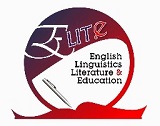THE EFFECTIVENES OF OUTING CLASS BASED CONTEXTUAL LEARNING ON UNDERSTANDING ENGLISH VOCABULARY IN JUNIOR HIGH SCHOOL LEVEL
Abstract
The lexicon is a fundamental aspect that educators must focus on, as it encompasses all the words understood and used by an individual. The importance of an effective vocabulary program, which includes extensive reading, specific word instruction, independent word learning strategies, and word-play activities. Recent educational innovations, such as Outing Class Based Contextual Learning, aim to enhance students' vocabulary skills by incorporating real-life experiences into the learning process. Nawas (2018) highlights the benefits of the Contextual Teaching and Learning (CTL) approach in empowering students, fostering an interactive learning environment, and promoting collaboration. The primary focus of this study is to explore the implementation of class-based contextual learning strategies in order to enhance the comprehension of English vocabulary among junior high school students. The selection of this particular group is based on their active cognitive development, as outlined by Bujuri (2018). Employing a quantitative approach with a quasi-experimental design, the research involved two experimental groups: one receiving the treatment and the other serving as a comparison. The findings revealed significant improvements in the experimental group, with an average post-test score of 79,39, compared to the control group's score of 72.58. This disparity underscores the effectiveness of class-based contextual learning methods in enhancing the understanding of English vocabulary. From a practical standpoint, the aim of this research is to offer alternative teaching approaches to educators, enabling students to learn beyond the confines of the traditional classroom. This method proves highly effective in the current era, as it introduces a new learning environment, particularly in fostering enthusiasm for English vocabulary acquisition. Outing class-based learning offers the advantage of strengthening the relationship between subject matter and real-world contexts, thereby providing a more meaningful learning experience for students.
Downloads
References
Alfian. (2019). Contextual teaching and learning approach (CTL) in English teaching. JournalEduscience,4(2),58-66. https://ejurnal.esaunggul.ac.id/index.php/EDU/article/view/2732
Aryanto, Mulyo rahardjo.( 2018.) Pembelajaran Kontekstual (contextual Teaching and Learning) dan pemahaman Konsep Siswa.Jurnal Pendidikan Guru
Madrasah Ibtidaiyah Almuta’aliyah
Al qahtani, A. (2015). The importance of vocabulary in language learning and how to be taught. International Journal of Teaching and Education, 3 (2), 21-34.
Bandura, A. (1986). Social foundations of thought and action: A social cognitive theory.
Prentice-Hall.
Bujuri, D. A. (2018). Analisis Perkembangan Kognitif Anak Usia Dasar Dan Implikasinya dalam Kegiatan Belajar Mengajar. LITERASI (Jurnal Ilmu Pendidikan),
20(9), 37-50.
Budianto, L., & Fatrisna Yuniar, R. (2023). The effect of Suggestopedia method on Indonesian
EFL learners’ reading achievement. Journal of English Language Teaching and Learning
(JETLE),4(2).https://ejournal.uinmalang.ac.id/index.php/jetle/article/view/22659
Capra, F. (1996). The Web of Life: A New Scientific Understanding of Living Systems. Anchor Books.
Dika Arif Chrisnawan (2014). "The Effect of Outing Class Based Contextual Learning on Understanding English Vocabulary in Grade III Students at SDN Gajahan Karanganyar for the 2013/2014 Academic Year."
Diamond.L, &Gutlohn.L.(2009).TeachingVocabularyWord-LearningStrategies.
Graves, M. F. (2000). A vocabulary program to complement and bolster a middle-grade comprehension program. Reading Research Quarterly, 35(2), 106-124.
Halik, M., & Jayasundara, A. K. (2013). Vocabulary development in language learning: Challenges and strategies. International Journal of Language Studies, 7(1), 82-97.
Jubhari, Y., Sasabone, L., & Nurliah, N. (2022). The Effectiveness of Contextual Teaching and Learning Approach in Enhancing Indonesian EFL Secondary Learners
Narrative Writing Skill Narrative text Contextual teaching Quasi experimental. Journal of Research and Innovation in Language, 4(1).
Johnson, E. B. (2002). Contextual teaching and learning: What it is and why it’s here to stay.
Corwin Press.
Lailatul Rahmawati, & Nazarullail. (2020). Early childhood development and its impact on later educational outcomes. Journal of Early Childhood Education, 18(3), 210-225.
Mauldin, R. L. (2020). 8.2 Quasi-experimental and pre-experimental designs. Mavs Open Press.
Nawas, A. (2018). Contextual Teaching and Learning (CTL) Approach through REACT
Strategies on Improving the Students’ Critical Thinking in Writing.
International Journal of Management and Applied Science, 7. 78
Nawas, M. (2018). Outing class-based contextual learning: A new approach to teaching vocabulary. Journal of Educational Innovation, 6(4), 67-81.
Pingsi Anggriani (2019). "Examining the Impact of Outing-Based Contextual Learning on the Acquisition of Indonesian Vocabulary in Class II Students at SD Negeri 33 Kaur."
Piaget, J. (1969). The Psychology of the Child. Basic Books.
Schmitt, N. (2002). Vocabulary in language teaching. Cambridge University Press.
Rahim, R., & Syamsul Alam, A. (2023). Pengaruh Pembelajaran Kontekstual Berbasis Outing Class terhadap Pembendaharaan Kosa Kata Bahasa Indonesia pada
Siswa Kelas V di SD Negeri 9 Sumanga. Journal Eduscience, 4(2), 58-66. https://ejurnal.esaunggul.ac.id/index.php/EDU/article/view/2732
Suryani Sahabuddin, E. (n.d.), (2022) Penerapan Pembelajaran Kontekstual Berbasis Outing Class Untuk Meningkatkan Hasil Belajar Siswa Sekolah Dasar di
Kabupaten Jeneponto. Application of Outing Class-Based Contextual Learning to Improve Learning Outcomes of Elementary School Students in Jeneponto Regency.
Vygotsky, L. S. (1978). Mind in society: The development of higher psychological processes.
Harvard University Press.
Yang, W. D., & Dai, W. P. (2012). Vocabulary memorizing strategies by Chinese university students. International Education Studies, 5(1), 208–215.
Yang, F., & Dai, W. (2012). Lexical competence in second language acquisition: The role of vocabulary knowledge. Language Learning, 62(3), 1020-1040.
Zukav, G. (1979). The Dancing Wu Li Masters: An Overview of the New Physics. William Morrow.









